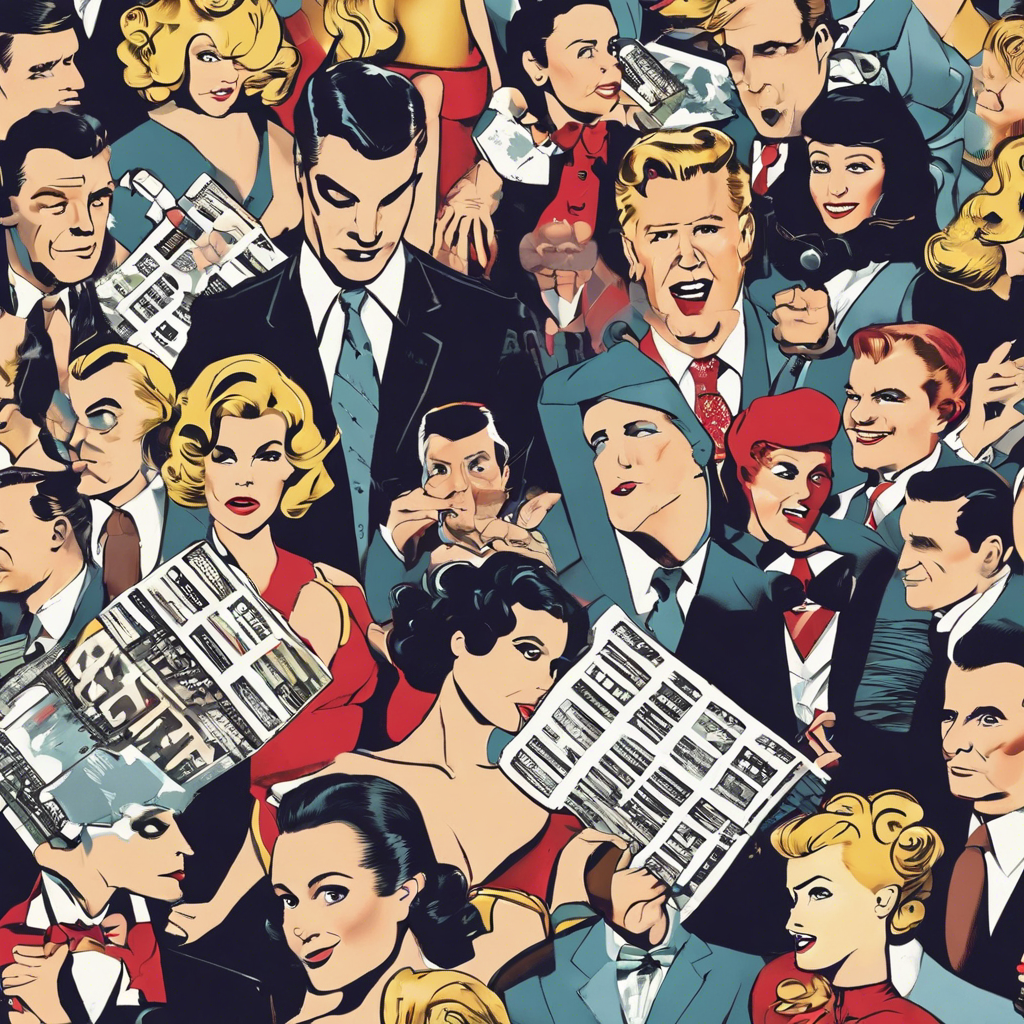The Decline of American Pop Culture: Monopolies, Stagnation, and Dwindling Audiences

Exploring the Impact of Digital Technology on America’s Culture Industries
In the early 20th century, American critic HL Mencken bemoaned the absence of high-level American minds compared to Europe. However, Mencken failed to recognize that America’s cultural genius lay in the realm of popular arts. From George Gershwin’s jazz compositions to the works of Hollywood directors like Christopher Nolan, American pop culture has captivated audiences worldwide. Yet, beneath the triumphs of these pop icons, America’s culture industries are facing significant challenges. This article delves into the decline of American pop culture, examining the impact of digital technology, monopolistic practices, and dwindling audiences.
Christopher Nolan’s Genius and the State of Hollywood
Christopher Nolan, known for his inventive manipulation of the film form, has consistently reshuffled the boundaries of storytelling. However, his latest film, “Oppenheimer,” marks a departure from his puzzle-palace constructions. This once-in-a-decade film centers around J. Robert Oppenheimer, one of the 20th century’s most enigmatic figures. Despite Nolan’s brilliance, Hollywood is currently paralyzed by a writer’s strike and the impact of new technologies on the industry. The monopolistic consolidation of once-thriving industries and the pursuit of lowest-common-denominator blockbusters have stifled creativity and made real innovation nearly impossible.
Taylor Swift’s Underrated Pop Music Genius
Taylor Swift, one of America’s most gifted pop music icons, often goes unrecognized and downplayed by pop culture tastemakers. Swift’s brilliance lies in her songwriting and storytelling abilities, captivating large stadiums with her performances. However, her success has been hindered by the unfashionable aspects of her identity in today’s identity-obsessed, politically-divided climate. Despite facing criticism, Swift’s fanatically loyal audience appreciates her dedication to her craft and her ability to connect with their emotions.
The Decline of America’s Culture Industries
America’s culture industries, including Hollywood, the music business, and book publishing, have all experienced significant declines. The rise of digital technology disrupted traditional business models and led to monopolistic stagnation. Streaming services, such as Netflix, have dominated the film industry, spending exorbitant amounts on content without regard for audience demand. The transition from the big screen to the small screen has made it challenging to create new stars, while the music industry’s shift to streaming has left artists struggling to earn a living. Book publishing has seen waves of consolidation, resulting in formulaic content and a lack of new literary stars.
The Impact of Digital Technology and Monopolistic Practices
The advent of digital technology has played a significant role in the decline of American pop culture. Streaming services and the consolidation of industries have led to top-down uniformity and a detachment from audience preferences. The monopolistic structures imposed by tech giants have stifled creativity and promoted risk-averse content. Furthermore, the erosion of newspapers and magazines, which once served as independent gatekeepers and taste-makers, has contributed to the decline in innovation and the lack of new literary voices.
The Need for Anti-Monopolistic Legislation
To revive America’s culture industries, there is a pressing need for anti-monopolistic legislation aimed at the tech industry. Both Democrats and Republicans have discussed punishing monopolies, but little action has been taken. Breaking the stranglehold of monopolistic practices and promoting diversity of thought and creativity is crucial for the revitalization of American pop culture. Hollywood’s striking writers and actors must demand change to benefit their audiences and foster a healthier industry.
Conclusion:
As America’s culture industries face the challenges of digital technology, monopolistic practices, and dwindling audiences, the need for change is evident. Christopher Nolan and Taylor Swift represent the brilliance and resilience that still exists within American pop culture. However, broader anti-monopolistic legislation is necessary to break the cycle of stagnation and promote creativity. By addressing these issues, America’s culture industries can reclaim their former glory and provide audiences with the innovative and captivating content they deserve.

